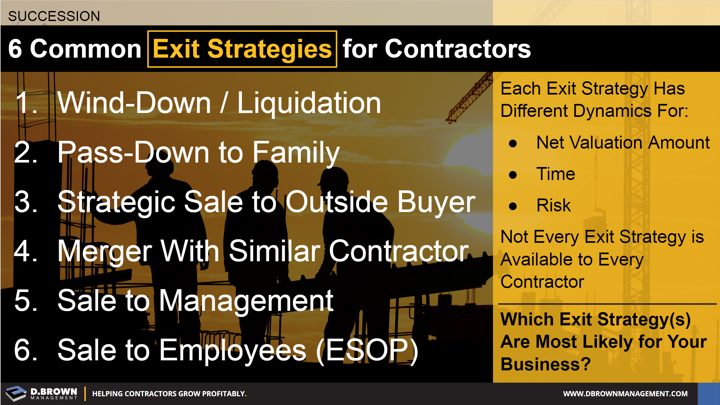The construction business is also amazing, with the owners making a good return on their capital. Management teams and employees earn a great living while building projects they can be proud of that will last for generations.
The majority of contractors are privately owned by a small group of people who are usually also managing the business.
Over time, those owners need to:
- Reduce how much time they spend in the business
- Get their capital out of the business
- Reduce their risks
There are 6 common exit strategies for these owners:
- Wind Down / Liquidation
- Pass Down to Family
- Strategic Sale to Outside Buyer
- Merger With Similar Contractor
- Sale to Management
- Sale to Employees (ESOP)
Each of these strategies has different dynamics for the net valuation amount, time, and risk. Not every strategy is available to or right for every contractor.
We will explore each of these in more detail with future posts to help you identify which might be best for your situation.

